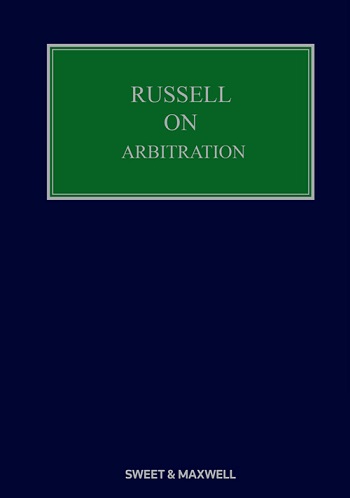
First published in 1849, Russell on Arbitration has been the principal practitioner’s reference on English arbitration for over 150 years. It supplies a clear, practical focus on all stages of the arbitration process, with detailed analysis of the Arbitration Act 1996 and subsequent case law, and in-depth consideration of the role of the English courts in supporting and supervising arbitrations.
As an authority on arbitration, key features of this title include: